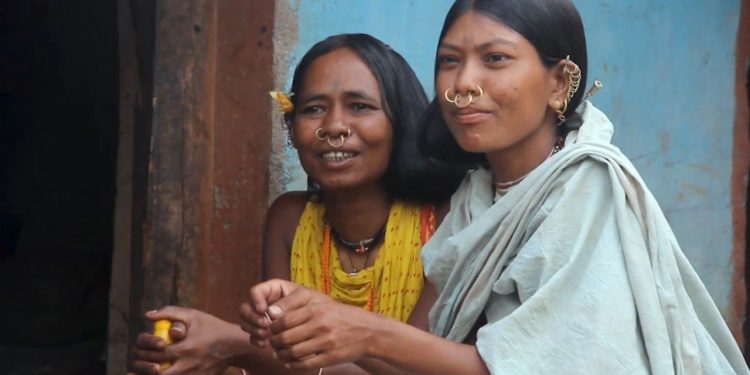Bhubaneswar: During the rise in Covid-19 cases, ST & SC Development department temporarily shut down the Odisha State Tribal Museum located on the premises of Scheduled Caste and Scheduled Tribe Research and Training Institute (SCSTRTI), Bhubaneswar for public.
As an initiative, virtual tour of the Museum has been taken up by the department. This Sunday the audience witnessed the ‘Indigenous Knowledge System of Dongria Kandha Tribe’ (Labour Cooperatives) through the Facebook and Twitter pages @stscdev, @scstrti, said Prof AB Ota, Director SCSTRTI.
Dongria Kandhas live in Bissam Cuttack, Kalyansinghpur, Munniguda blocks of Rayagada. Their main occupations are embroidery, wood carving and decorating, wall painting, comb making, pineapple cultivation and fruit processing. They are shifting cultivators.
Dharani Penu is their supreme deity and sits in every village street in a hut called Kudi represented by three elevated stones. Her consort Kotebali Penu is represented by a big vertical stone with a crossed wooden pole at its back.
The important festivals are Ghanta Parba, Salangi, Mandia Rani, Dhan Nuakhia, Pidika, Punapadi, Dongar Puja, Meria Puja, Bihan Puja. Social equality is an important feature of Dongria Kandha Society. Born out of labour-intensive nature of hill cultivation, the village labour cooperatives foster kinship, reduce the financial burden on families and ensure dignity to all members of the community.
Through the cooperative, adolescent boys and girls, men, women and elderly contribute equally in terms of labour towards the village fields and orchards. The film focuses on various types of labour cooperatives of the Dongria Kandha, their structure, organisation and functioning. The film also documents, how over time the role of these cooperatives have evolved and changed.
Earlier, the museum had virtually showcased the life and culture of the Juang tribe of Gonasika.
PNN






































